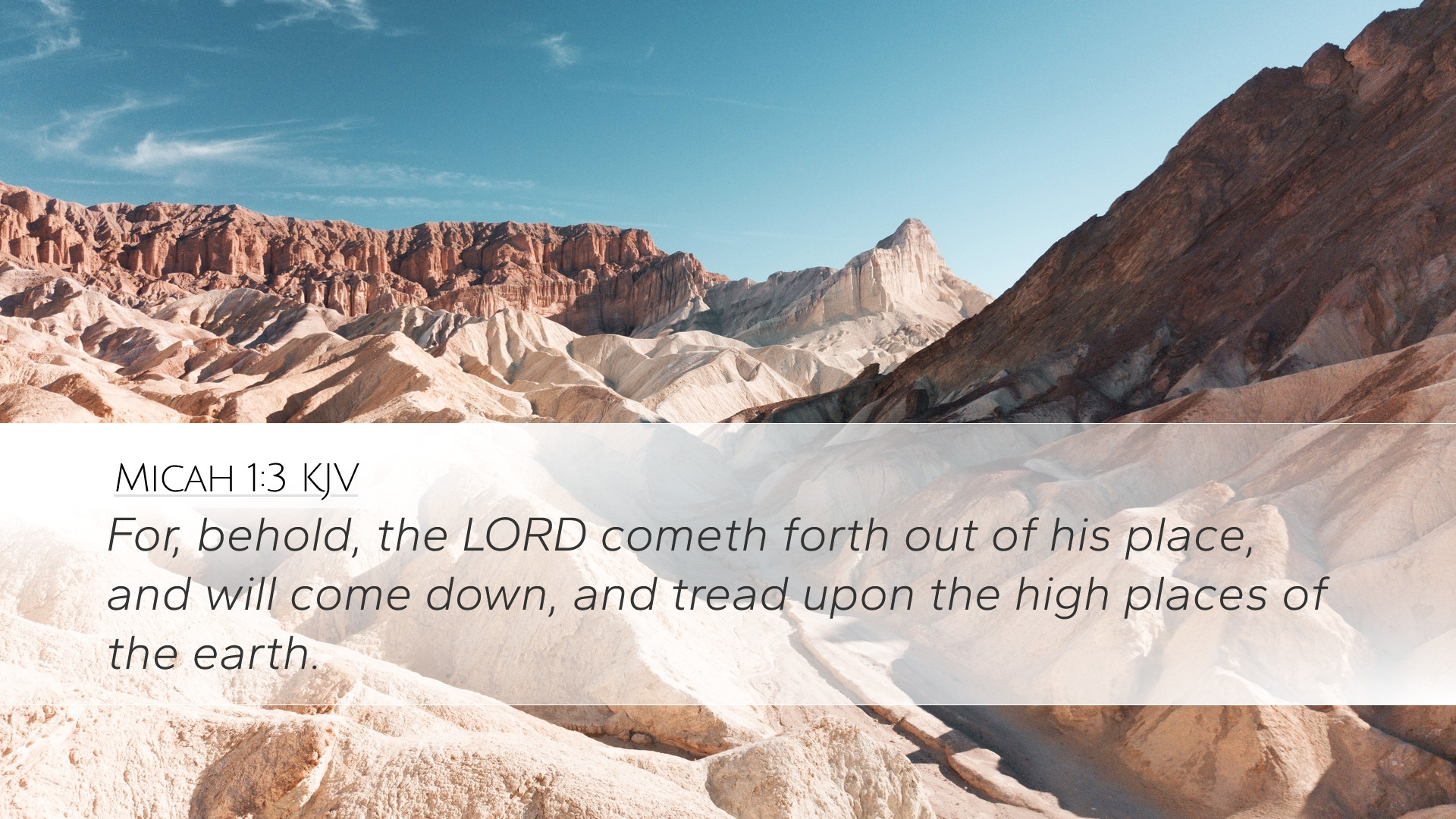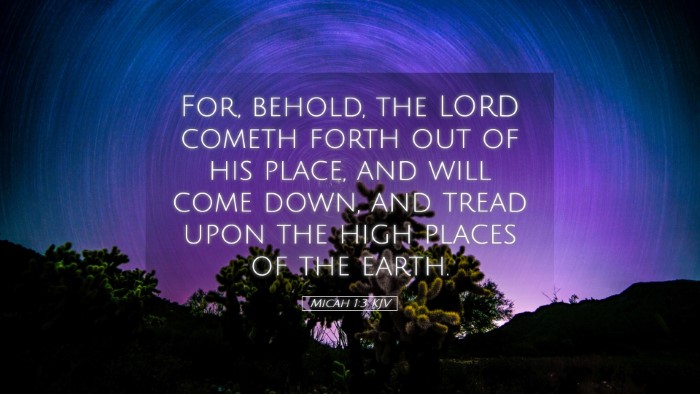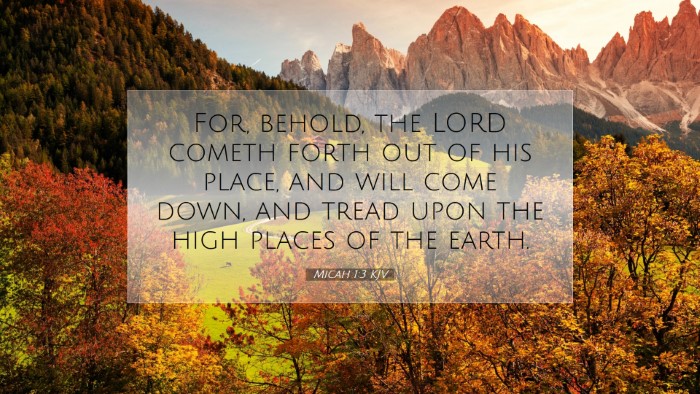Old Testament
Genesis Exodus Leviticus Numbers Deuteronomy Joshua Judges Ruth 1 Samuel 2 Samuel 1 Kings 2 Kings 1 Chronicles 2 Chronicles Ezra Nehemiah Esther Job Psalms Proverbs Ecclesiastes Song of Solomon Isaiah Jeremiah Lamentations Ezekiel Daniel Hosea Joel Amos Obadiah Jonah Micah Nahum Habakkuk Zephaniah Haggai Zechariah MalachiMicah 1:3
Micah 1:3 KJV
For, behold, the LORD cometh forth out of his place, and will come down, and tread upon the high places of the earth.
Micah 1:3 Bible Commentary
Commentary on Micah 1:3
Verse: "For, behold, the LORD cometh forth out of his place, and will come down, and tread upon the high places of the earth."
Introduction
The Book of Micah is a profound prophetic narrative that addresses not only the sins of Israel and Judah but also reveals the nature of God's impending judgment and mercy. In Micah 1:3, we find a pivotal verse that underscores the seriousness of divine intervention in history. This commentary seeks to combine insights from various public domain scholars, namely Matthew Henry, Albert Barnes, and Adam Clarke, to provide a comprehensive understanding of this verse.
Exegesis of Micah 1:3
This verse is rich in theological and eschatological significance. The imagery of God’s coming forth and treading upon the high places suggests a dual theme of judgment and authority. Micah captures the essence of divine action in the affairs of men, which is critical for understanding both the prophetic message and its implications for believers today.
The Divine Initiative
1. The Inception of Divine Action
Matthew Henry posits that God's coming is not passive but an active initiative. He writes that the emphasis is on “the LORD cometh forth” indicating that God is not distant but near, ready to confront the injustices present among His people. This theme of divine initiative implies that God is responsive to the moral decay prevalent at the time, a salient message for contemporary believers who might see similar patterns in society.
God’s Judgment
2. The Nature of Divine Judgment
Albert Barnes elaborates on the concept of God treading upon “the high places.” High places were often associated with idolatrous worship and signify spiritual arrogance. By coming down to tread upon these high places, God demonstrates His supremacy over false gods and the structures that uphold them. This act symbolizes judgment, implying that no earthly power can withstand the authority of the Almighty. The high places that defy God will be brought low, a sobering reminder for churches and communities to evaluate their own high places today.
Hope Amidst Judgment
3. The Possibility of Restoration
Adam Clarke offers a nuanced perspective on this verse by intertwining the themes of judgment with hope. While the immediate context showcases impending judgment, it also provides a backdrop for repentance and restoration. The coming of the Lord, though severe, also serves as an invitation for people to turn back to Him. This realization brings forth the notion that even in judgment, God's relentless love seeks to draw His creation toward redemption.
Theological Implications
The verse invites an introspective examination of our own lives and communities. How do we respond to the divine call to accountability? The promise that “the LORD cometh” should not only instill fear of His judgment but also inspire hope in His grace. As pastors and teachers, it is crucial to communicate this duality: God is just, but He is also faithful to His covenant, offering restoration to those who return to Him.
Application for Modern Believers
4. A Call to Awareness
- Recognizing Idolatry: Just as Israel faced judgment for their high places, modern believers must evaluate what high places exist in their lives that rival God.
- Preparing for Divine Encounter: The verse reminds us that God is actively involved in human affairs. How can we prepare our hearts for His coming presence in our lives?
- Embracing God’s Restoration: The prophetic message of Micah not only calls for recognition of sin but also for embracing God's offer of grace and restoration.
Conclusion
Micah 1:3 serves as a profound reminder of God's sovereignty and His active role in administering justice. It combines the themes of impending judgment with the possibility of restoration, providing a balanced view of the divine character. As we delve into this verse, may we be challenged to remove the high places in our lives and embrace the Lord's coming as an opportunity for renewal and transformation. The insights gleaned from commentators highlight the timeless relevance of Micah's prophecy and its application for both ancient and modern audiences.


